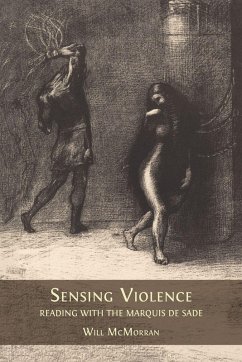What does reading fictional violence do to us as readers? To find out, this provocative and original book turns to the works of an author synonymous with sexual violence: the Marquis de Sade. Drawing on psychology, cognitive literary studies, and empirical research, it argues that reading is a fundamentally embodied act - and one that implicates us far more than we might like to think in fictional depictions of violence.This book turns not just to Sade for answers, but to his readers. Where previous studies have focussed either on Sade's language or his philosophy, this one places the lived experience of actual readers at the heart of its investigations. Taking particular scenes from Sade's fiction, from a young girl posing as a statue in 'Eugénie de Franval' to the brutal rape of the heroine of Justine, this book explores what happens not just on the page but in the minds and bodies of readers as they bring these scenes to life.Drawing on questionnaires completed by readers of those scenes, and on his own experience as a reader, teacher and translator of Sade, the author challenges the disembodied approach that has dominated Sade studies and literary criticism more broadly over recent decades. This is not just a book about Sade-it's a radical exploration of what happens to us when we are confronted with scenes of violence. Urgent, accessible, and personal, it offers a new model for understanding reading as a matter of making sensations as well as making sense.
Bitte wählen Sie Ihr Anliegen aus.
Rechnungen
Retourenschein anfordern
Bestellstatus
Storno








